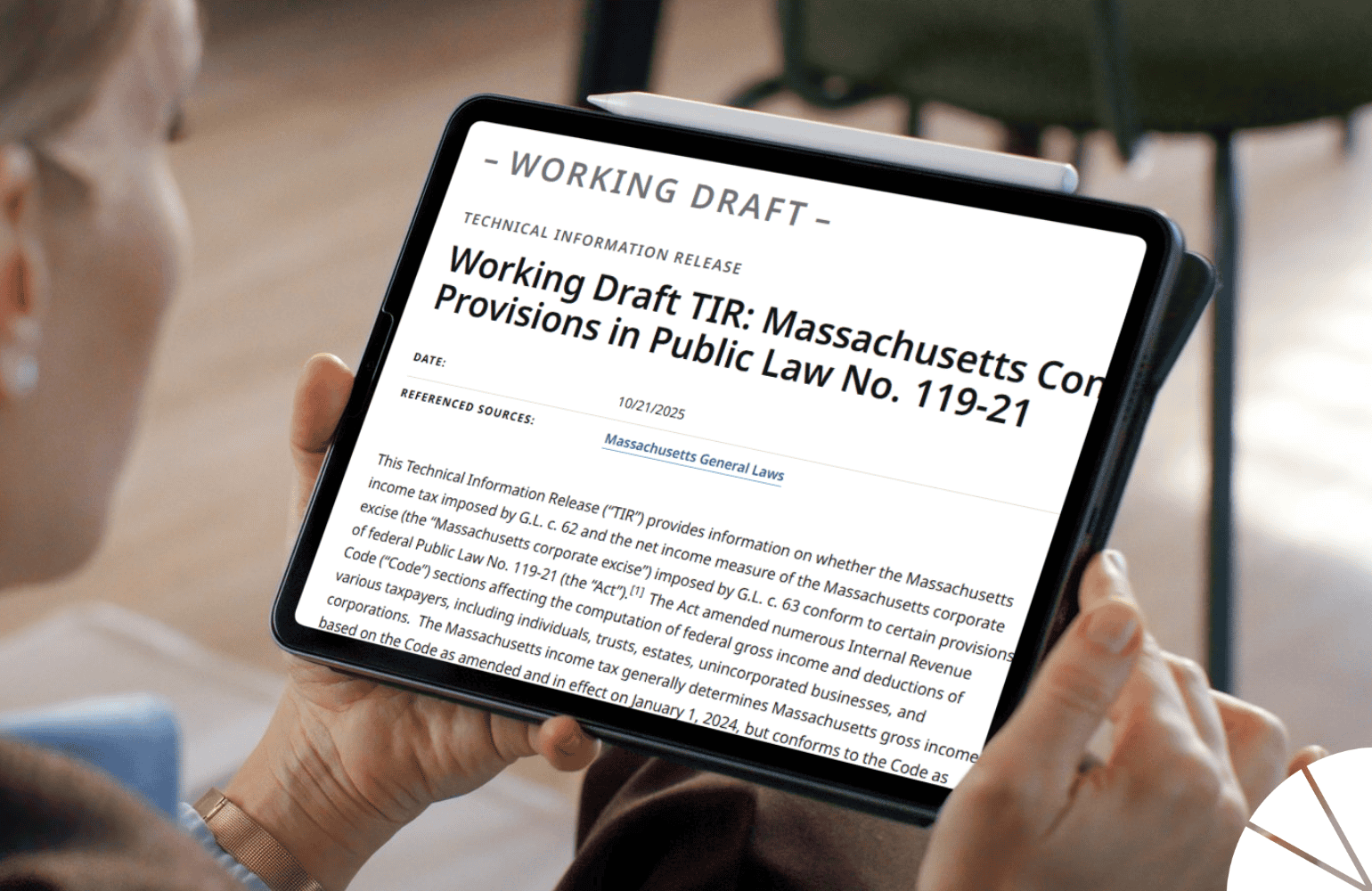
Authored by RSM US LLP
Executive summary
The approaching turnover of the calendar year presents a good opportunity for New Hampshire taxpayers to plan for recent changes in the treatment of business interest expense impacting the state’s business profits tax. Additionally, individual and pass-through taxpayers should recall that the interest and dividends tax will be phased out entirely beginning in 2025, but historic liability will create continued exposure.
Amended business interest treatment
Recall that on July 28, 2023, Governor Chris Sununu signed Senate Bill 189 into law altering the definition of ‘gross business profits’ for determining the additions and deductions allowed under the New Hampshire business profits tax (BPT). This legislation resulted in New Hampshire decoupling from the federal tax treatment of the business interest expense deduction under section 163(j). Effective Jan. 1, 2024, New Hampshire allows a deduction from taxable income any business interest that is disallowed for federal purposes based on the limitations under section 163(j). This change applies exclusively to the BPT as section 163(j) does not impact the New Hampshire business enterprise tax (BET). The law change also requires an addition modification to New Hampshire taxable income for the amount of the federal interest expense deduction from any section 163(j) carryforwards for tax years commencing on or after Jan. 1, 2024.
As New Hampshire conformed to section 163(j) for tax periods prior to 2024, taxpayers may have a carryforward of previously disallowed interest expense for the New Hampshire BPT. Senate Bill 189 therefore provides a deduction for the interest expense carryforward for tax years ending prior to Jan. 1, 2024. The deduction is required in three equal parts over three consecutive years beginning with the first tax year commencing on or after Jan. 1, 2024.
Accelerated phaseout of New Hampshire interest and dividends tax
For tax periods ending on or after Dec. 31, 2024, New Hampshire imposes a 3% interest and dividends tax (I&DT) on certain interest and dividend income received during the taxable year by resident individuals, LLCs, partnerships, and specified associations, from all sources, in excess of $2,400. The I&DT will be fully phased out for taxable periods beginning after Dec. 31, 2024.
The phaseout of the I&DT previously was scheduled to take effect on Jan. 1, 2027. However, in 2023, the New Hampshire legislature enacted House Bill 2 which expedited the repeal of the tax by accelerating the phase-out date to Jan. 1, 2025.
The administrative provisions of the I&DT will remain in effect to allow the New Hampshire Department of Revenue Administration the ability to audit taxpayers and collect taxes on interest and dividends subject to taxation through Dec. 31, 2024. Additionally, House Bill 2 provides that taxpayers who do not report on a calendar-year basis will receive prorated exemptions related to taxable interest and dividends income consistent with their reporting period.
Taxpayers with questions about the recent changes to New Hampshire business taxes should speak to their tax advisers for more information.
This article was written by Amy Letourneau and originally appeared on 2024-12-17. Reprinted with permission from RSM US LLP.
© 2024 RSM US LLP. All rights reserved. https://rsmus.com/insights/tax-alerts/2024/new-hampshire-year-end-business-tax-update.html
RSM US LLP is a limited liability partnership and the U.S. member firm of RSM International, a global network of independent assurance, tax and consulting firms. The member firms of RSM International collaborate to provide services to global clients, but are separate and distinct legal entities that cannot obligate each other. Each member firm is responsible only for its own acts and omissions, and not those of any other party. Visit rsmus.com/about for more information regarding RSM US LLP and RSM International.
The information contained herein is general in nature and based on authorities that are subject to change. RSM US LLP guarantees neither the accuracy nor completeness of any information and is not responsible for any errors or omissions, or for results obtained by others as a result of reliance upon such information. RSM US LLP assumes no obligation to inform the reader of any changes in tax laws or other factors that could affect information contained herein. This publication does not, and is not intended to, provide legal, tax or accounting advice, and readers should consult their tax advisors concerning the application of tax laws to their particular situations. This analysis is not tax advice and is not intended or written to be used, and cannot be used, for purposes of avoiding tax penalties that may be imposed on any taxpayer.





